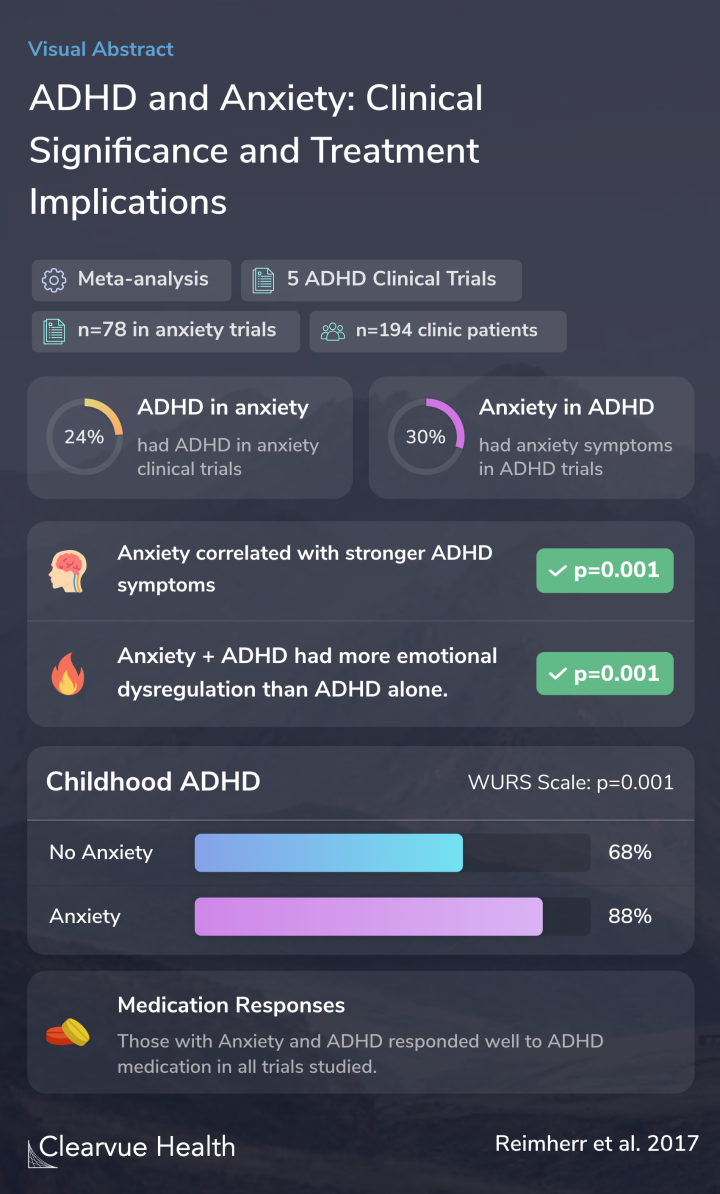ADHD and Anxiety: Clinical Significance and Treatment Implications
Frederick W Reimherr , Barrie K Marchant , Thomas E Gift , Tammy A Steans

Objective
Anxiety is common in those with ADHD. Some research has shown that having anxiety affects the ADHD symptoms we experience.
In this study, researchers wanted to examine the link between ADHD, emotional dysregulation, and anxiety.
In comparison to the DSM formulation of ADHD, we have proposed that ADHD in adults should be divided into Inattentive and Emotional Dysregulation Presentations. Under both systems, there is potential overlap with generalized anxiety disorder (GAD).
Methods
Researchers collected data from ADHD clinical trials and anxiety clinical trials. As a comparison, they also collected data from patients in an ADHD clinic and a forensic clinic.
We compared data from four distinct populations: ADHD clinical trials, GAD clinical trials, an ADHD clinic, and a forensic clinic.
Results
The results showed a substantial overlap between ADHD and anxiety.
Around 30% of those with ADHD had anxiety, consistent with previous studies.
24% of those with anxiety had ADHD.
Having anxiety with ADHD correlated with having stronger ADHD symptoms. In a way, anxiety doesn’t just add to ADHD; it also amplifies ADHD.
Those with anxiety and ADHD were also more likely to experience emotional dysregulation. Previous studies have shown that those with ADHD struggle to manage their emotions. This study provides evidence that having anxiety makes this worse.
Those with ADHD and anxiety were likelier to have had notable ADHD symptoms as children.
Fortunately, across all the trials studied, researchers found that those with ADHD and anxiety responded well to ADHD treatment.
Approximately 25% of patients in each population had comorbid ADHD and anxiety. Comorbid subjects reported more childhood ADHD symptoms and higher scores on ADHD scales and were more likely to fit criteria for ADHD Emotional Dysregulation Presentation or DSM-IV combined type. Comorbid su...
Key Takeaways
These results provide further evidence that ADHD and anxiety are intertwined. There is a substantial overlap between the two conditions. Having anxiety affects the severity of ADHD symptoms.
The results of the study add another dimension to this relationship by showing that emotional dysregulation can be affected by ADHD and anxiety.
We know that those with ADHD can struggle with regulating their emotions. Based on these results, we have evidence that those with ADHD and anxiety may have even more difficulty.